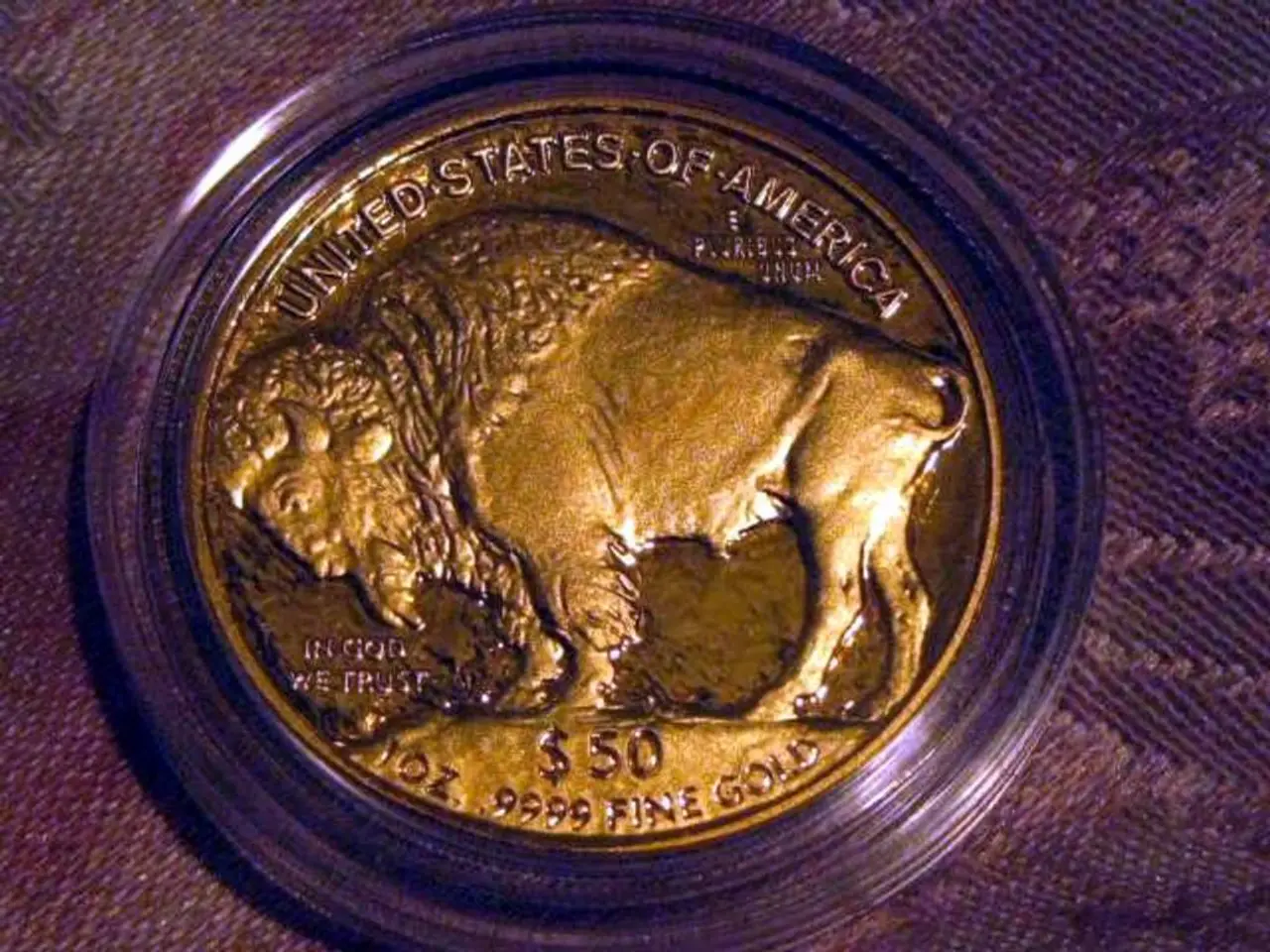Trump imposes gold import taxes, thwarting a secure investment haven
In recent developments, the United States has imposed tariffs on the import of one-kilo gold bars, a move that has raised eyebrows in the global gold trade. Switzerland, a central player in the global gold trade, exports significant amounts of gold to the US, with a value of $61.5 billion in the 12 months up to June.
The tariffs, according to Stephen Innes of SPI Asset Management, mark a "tectonic shift" on the gold market. By focusing on kilobars, the government is not only collecting tariffs but also "rewriting the international rules on what constitutes a neutral asset and what doesn't".
The tariffs may have indirect effects on the global gold market. As market uncertainties rise due to trade disputes or tariffs, there can be increased demand for perceived safe-haven assets like gold or, increasingly, cryptocurrencies such as Bitcoin. Some investors may view cryptocurrencies as a hedge against traditional financial disruptions or currency devaluations.
However, it's important to note that the direct impact of these gold tariffs on the global gold trade, specifically attributed to the Trump administration, may be minimal or non-existent. Trade policies during the Trump era primarily focused on metals like steel and aluminum rather than gold itself.
The tariffs have also sparked a legal battle between the US and Brazil at the World Trade Organization (WTO). Brazil argues that the erratic trade policy violates central commitments made to the WTO. The US justifies these tariffs with internal political arguments, namely the criminal prosecution of former Brazilian President Jair Bolsonaro, who has been under house arrest since the beginning of this week, ordered by a federal judge for alleged violations of conditions.
The tariffs will be collected by the Customs Border Protection Agency (CBS). The US has also agreed to correct errors and refund excess tariffs in the trade agreement between the US and Japan.
The tariffs on gold imports may make cryptocurrencies more attractive to investors, particularly stablecoins. In a time of trade tensions and economic uncertainties, the appeal of digital currencies as alternative assets continues to grow.
Innes believes that this directive is "another brushstroke in Trump's America First painting". The future of the global gold trade and the role of cryptocurrencies in uncertain trade environments remain topics of ongoing interest and debate.
- Investors may see cryptocurrencies, such as Bitcoin, as a potential hedge against traditional financial disruptions or currency devaluations, given the increased demand for perceived safe-haven assets like gold in times of market uncertainties due to trade disputes or tariffs.
- The tariffs on gold imports, which have triggered a legal battle between the US and Brazil at the World Trade Organization (WTO), are part of a series of trade policies during the Trump era, primarily focusing on metals like steel and aluminum rather than gold itself.
- The collecting of tariffs on gold imports, which was met with criticism in the global gold trade, is handled by the Customs Border Protection Agency (CBP) in the United States, while the US has also agreed to correct errors and refund excess tariffs in the trade agreement between the US and Japan.




